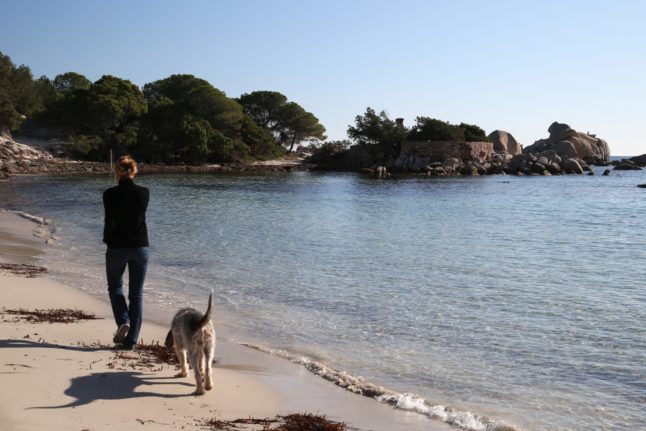Many people in France enjoy a Galette des Rois around this time of year.
If you’re not familiar with the dish, it is basically a frangipane tart made with pastry, butter, ground almonds and a few extra ingredients that will stretch the already bursting waistline for one final time before the January dieting begins.
It is traditionally served on Epiphany – a Christian festival celebrated on January 6th and has many fun traditions attached.
READ ALSO Galette des rois: What you need to know about France’s royal tart
Aficionados will have noticed that the price of these cholesterol bombs has shot up since last year, in some cases, by as much as €2.
The reason for this inflation are rising butter prices.
The Eurex derivatives market showed that one tonne of butter cost €4,600 in October and is now close to €6,000. Even though prices are still a fair way off the great butter crisis of 2017 when prices reached close to €7,000 per tonne, bakeries are still struggling and this has a knock-on effect on consumers.
So what is driving these increased prices?
There are multiple factors, essentially boiling down to supply and demand, that mean the price of butter is increasing.
Demand is higher than ever before, not just in France, but internationally. A quarter of butter produced in France is exported to other EU countries. And China imported 20 percent more butter from the European Union in 2021 than the year before.
Supply is struggling to keep up. Many dairy farmers prefer to use milk for cheese production as it is more profitable. As much as 30 percent of dairy production in France ends up being used for pizzas or as hamburger cheese to be sold in shops and restaurants.
The spring and summer of 2021 was also unseasonably cold and rainy meaning that there was not enough good quality hay for cows to eat, resulting in lower milk production. Overall, last year saw a 2 percent fall in overall milk production in France compared to the year before.
Read More France faces Christmas cheese shortage
Another factor is that despite enormous government subsidies, the agricultural sector in France is struggling. Over the past for years, the number of dairy cows has decreased by around 250,000.
All of this has seen the price of butter, a key ingredient of Galette des Rois, soar.
Does this mean other products will become more expensive?
Logically, it would follow that other products where butter is a key ingredient, such as croissants, will become more expensive. This was certainly the case during the butter shortage of 2017 – although the crisis then was deeper than the current one.
If you haven’t already felt the price of goods at the boulangerie increase, it could be because bakers are often aware of upcoming shortfalls.
“We heard about the rise [of butter prices] in September, so we decided to stock up. I bought two times more butter than normal,” said Bruno Struillou, a baker in Plobannalec-Lesconil.
“If we manage to sell lots of Galettes in January, let’s say 10 percent more than normal, that will compensate the price rises. Otherwise, we will have to increase the price a little bit on other buttery products in February and March,” he told France Bleu.



 Please whitelist us to continue reading.
Please whitelist us to continue reading.
Member comments